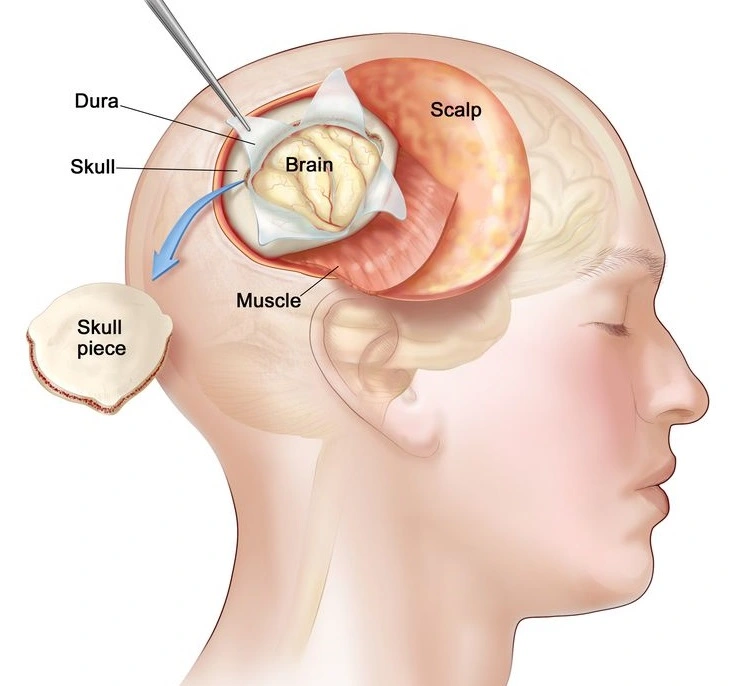Pituitary Tumor Treatment
India
-
Our Price USD 5193
-
Hospital Price USD 5770
-
You Save : USD 577
Booking Amount: USD 519. Pay Remaining 90% at the hospital.
Book NowAdditional Credit
Among the important extras we offer as part of the Additional Credit are the following:
-
Site Tourism For The Patient & Attendant
-
Airport Pick & Drop Service
-
Ambulance service at airport
-
Priority appointments with The Doctor
-
Cancel Easily Anytime with Full Refund
-
Room Upgradation
-
Free Online Doctor Consultation Valued at USD 20
-
Free hotel Stay for 5 to 7 days Accordingly
-
Welcome Kit at Arrival
-
Interpreter
-
Medical Visa Assistance
What is Included?
- Doctor consultation charges
- Lab tests and diagnostic charges
- Room charges inside hospital during the procedure
- Surgeon Fee
- Cost of implant
- Nursing charges
- Hospital surgery suite charges
- Anesthesia charges
- Routine medicines and routine consumables (bandages, dressings etc.)
- Food and Beverages inside hospital stay for patient and one attendant.
What is not Included?
- Extra Radiology Investigations
- Healthcare Professionals Charges of other consultations.
- Other Requested Services such as Laundry etc.
- Additional Pharmaceutical Products and Medicines After Discharge from Hospital.
- Management of Conditions Unrelated to Procedures or Pre-Existing.
- The cost of any additional implants will be in addition to the package cost.
Package Description
Pituitary Tumor Treatment:
Pituitary carcinomas are treated palliatively in order to reduce symptoms and enhance quality of life. The following therapies could be used: Radiation therapy or surgery (craniotomy or transsphenoidal surgery) to eliminate the malignancy. medication therapy to inhibit the tumor's hormone production.
Disease Overview:
Muscle-invasive bladder cancer
Unusual growths in the pituitary gland are called pituitary tumors. The size of this gland is comparable to that of a pea. It is situated at the base of the brain, behind the nose. A subset of these tumors induce the pituitary gland to produce excessive amounts of certain hormones that regulate vital bodily processes. The pituitary gland may produce too little of certain hormones due to other factors.
Disease Signs and Symptoms:
Pituitary tumors do not always produce symptoms. Occasionally, these tumors are discovered after an imaging test (MRI, CT scan) that is performed for a different purpose. Pituitary tumors typically don't require treatment if they don't produce any symptoms.
Macroadenomas can strain on adjacent nerves, the brain, the pituitary gland, and other bodily components. That may result in symptoms like:
1. A headache.
2. Issues with the eyes because of strain on the optic nerve,
3. In particular, double vision and side vision loss, sometimes known as peripheral vision.
4. Face pain, which occasionally includes ear or sinus pain.
5. Drooping the eyelid.
6. seizures.
7. vomiting as well as nausea.
Disease Causes:
The pituitary gland is a tiny gland that resembles a pea in size. It is situated at the base of the brain, behind the nose. The pituitary gland, despite its diminutive size, affects almost every bodily organ. It produces hormones that regulate vital bodily processes like blood pressure, growth, and reproduction.
It is still unclear what triggers the pituitary gland's unchecked cell proliferation that results in a tumor. Rarely, inherited genes can be the cause of pituitary tumors. However, most lack a definite inherited cause. Nevertheless, researchers believe that genetic alterations could be a significant factor in the development of pituitary tumors.
Disease Diagnosis:
Pituitary cancers frequently go undetected or unnoticed. This is often the case since the symptoms of enormous tumors called macroadenomas and functional adenomas, which produce hormones, are sometimes confused with other illnesses. It's also because their growth is quite gradual. Nonfunctioning microadenomas are small pituitary tumors that do not produce hormones and frequently do not cause symptoms. If they are found, it's usually as a result of an imaging test—a CT or MRI scan, for example—that is performed for another purpose.
Disease Treatment:
Treatment for pituitary adenomas is often not necessary. Since they are not cancer, keeping an eye on them over time may be a wise course of action if they don't exhibit any symptoms. If therapy is required, the particular course of action will depend on the kind, size, location, and rate of tumor growth. Treatment plans are also impacted if a tumor is producing too much or too little of a certain hormone in the body. Treatment planning also takes your age and general health into consideration.
The purpose of treatment is to: - Bring hormone levels back within a normal range.
- Prevent further harm to the pituitary gland and enable it to resume normal function.
- Reverse tumor pressure-related symptoms or stop them from getting worse.
If surgery is necessary to treat a pituitary adenoma, the tumor may be removed. A pituitary adenoma may potentially be treated with medication or radiation therapy. Medical professionals work as a team to treat patients. Among the group could be a:
1. A neurosurgeon, another name for a brain surgeon.
2. An ENT surgeon, commonly known as a nose and sinus surgeon.
3. Endocrinologist, another name for an expert in hormone disorders.
4. A radiation oncologist, another name for a specialist in radiation therapy.
Information related to Treatment
Package Details
Days in Hospital
3 Days
Days in Hotel
*
10 Days
Room Type
Private


